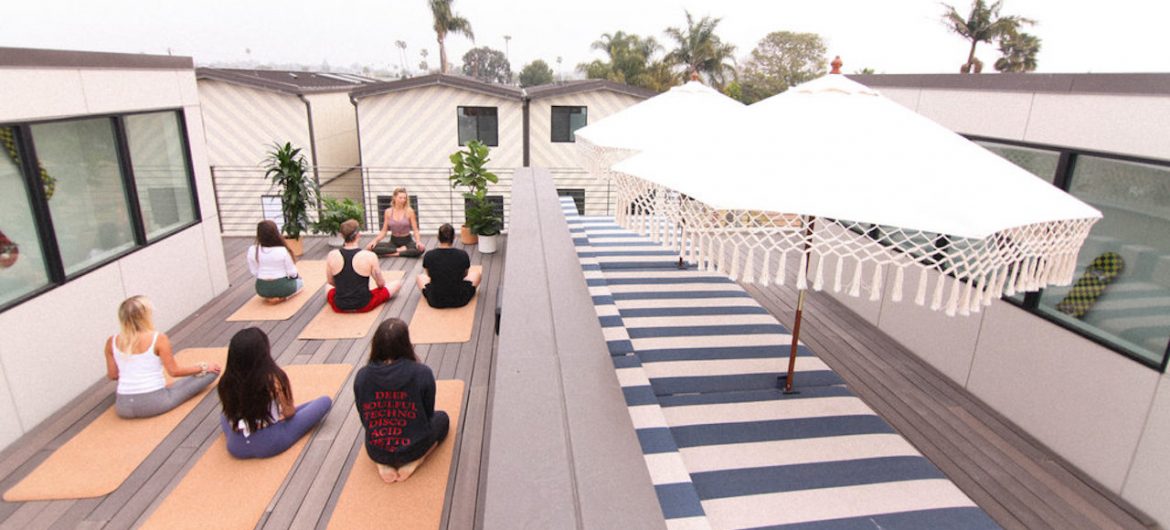Wellness-based co-living spaces are on the rise, thanks to startups like Haven and Ollie. These companies offer all of the conveniences of traditional co-living arrangements, such as flexible leases and community events, with a wellness twist.
The wellness and health industry is worth $4.2 trillion globally and encompasses nutrition, beauty, fitness, health care, niche real estate, specialized travel, spa, and related industries.
Wellness-based co-living spaces tap into this trend by offering tenants a range of amenities, including gyms, yoga studios and juice bars on-site, along with community hikes and other health-based outings.
Ollie, which currently manages four locations, hires house managers that are tasked with planning around 20 health-based group activities per month, such as hiking and cycling.
“One of the things that foster developing relationships is having similar interests,” Daniel Russell, Ph.D., a professor of human development and family studies at Iowa State University, told SELF.
Haven, another startup that offers wellness-based programming, ups the ante by only accepting members who have a demonstrated an interest in health and fitness. Many Haven residents are yoga instructors or personal trainers, for instance.
“Half of our members are very active athletes and wellness participants, but they might work as an assistant or a paralegal or an engineer at Google,” said Ben Katz, the founder and CEO of Haven.
De’Andre Sinette, a resident at a Haven location in Los Angeles, told Los Angeles Times that the health-focused living arrangement has taught him to eat cleaner.
“I’m not gonna bring McDonald’s here,” Sinette said. “They’ll be like, ‘What the hell are you doing?’”
Treehouse is a co-living startup based in Los Angeles that also prioritizes health and wellness. They boast Olympian-led workout classes and a fully stocked juice bar, among other health-based amenities.
These co-living spaces offer opportunities for mental growth, in addition to allowing for the pursuit of physical excellence. Haven, for instance, requires tenants to perform two hours of community service per month. The company also offers meditation classes and tarot readings.
It goes without saying that fitness and wellness can help with mental health. This, combined with the co-living sector’s mission to alleviate loneliness among millennials, could help solve many problems faced by the younger generations.
With the rise of co-living situations, these wellness-based startups foresee continued growth in the coming years.
“Our goal is to eventually have hundreds of thousands of people who have had this Haven experience of togetherness … a tight-knit group of people who share common passions,” Ben Katz, CEO of Haven, said.
photo credit: haven





